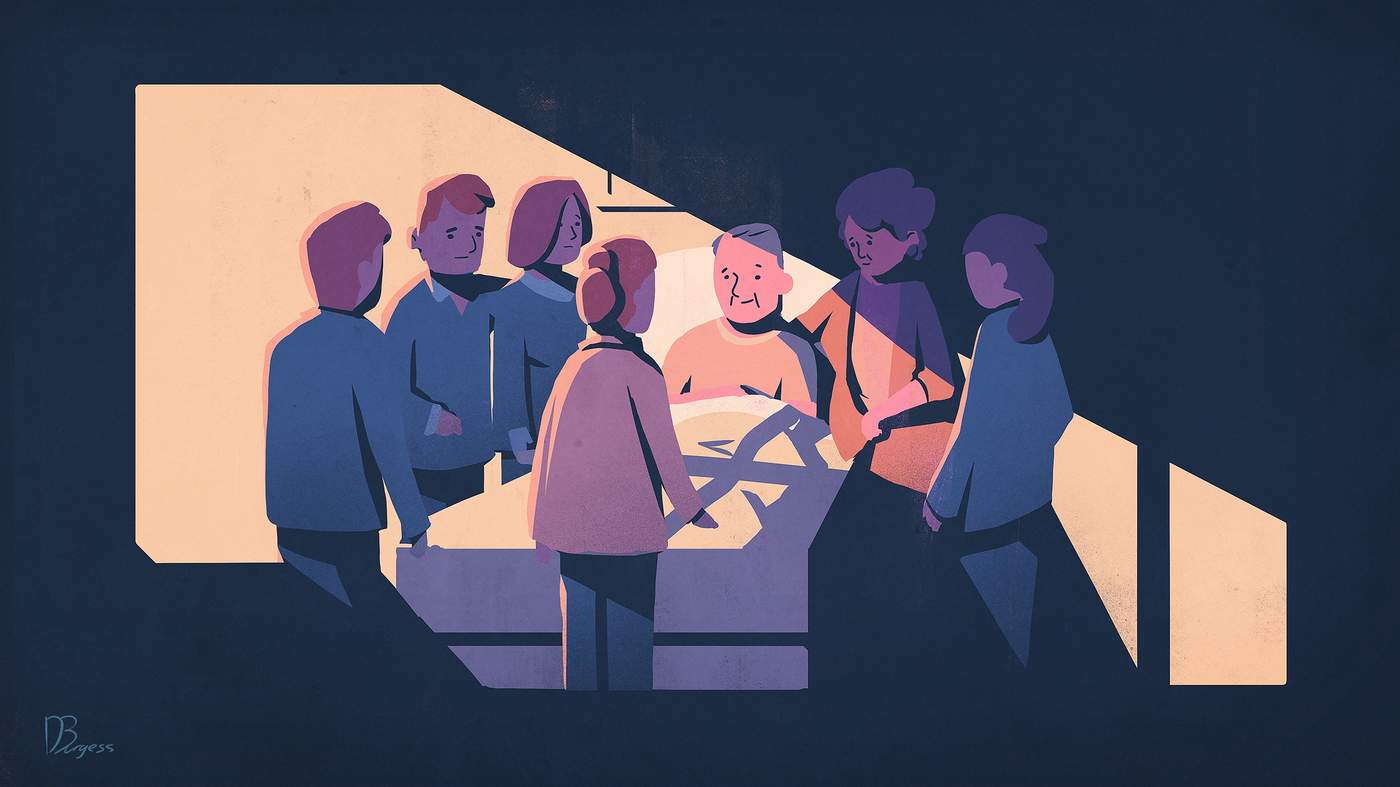At the End Die Well

“Just thinking about D-Day,” the old man replied.
I had noticed him walk into the coffee shop, his back hunched over almost parallel to the ground. He took his seat and immediately, almost choreographed, a barista greeted him with a cup of coffee, a donut, and the kind of smile that only makes sense for a regular.
“How are you today, Jack?” she had asked.
It was early June, and the man had to be in his eighties — these were more than enough reasons for me to ask more. So I pulled up a chair, and on an unsuspecting early morning, almost directly from where I am writing now, I became friends with a WWII veteran. His name was Jack.
Throughout the summer, before the kids’ new school year started in August, I came every Friday morning and pulled back up a chair beside him. Jack told good stories, several of which I heard more than once. He was America’s “greatest generation” right in front of me. He was a soldier. He was an educator. And he was old. He would not live much longer, even by the most generous estimates.
This was something I thought I knew until one morning, after not seeing him for a while, another regular at the coffee shop told me Jack had died. I was blindsided. I should’ve had a plan to find this out sooner. I should’ve anticipated this happening. But I didn’t.
I didn’t think about Jack dying because I rarely think about death. You probably don’t either.
As a society, especially those of us in the younger generation, we haven’t come to grips with what dying is all about. We don’t really know what it is or what it means. At best, we’re confused. At worst, we’ve invoked a kind of intentional ignorance, smudging the details and turning our heads. We’ve all at some point, and often painfully, been affected by the deaths of others. But when it comes to our own death, we just don’t go there. We don’t know how.
But we can know, and we should go there. Without it being too morbid or exhaustive, there are three basic truths about death that form a foundation for how to think about it going forward. These are straightforward, big-picture realities that, though they don’t say everything, they at least get us started.
1. Death Is Terrible.
We often err in one of two ways when it comes to death. We either celebrate it as a ticket out of this crummy world or we let its impending reality paint despair over all of life. The first mistake is to shrug death off like it’s not a big deal. The second mistake is a straightjacket that can’t see past the material world. This latter option is certainly out there, at least among some philosophy majors and marginal ideologies, but it’s by far the less popular of the two. Nietzsche might have been fun to read in college, but it rarely holds up over time.
The more serious problem, it seems to me, is the positive spin on death that has subtly crept into the mainstream mind. Back in the mid-90s, during hip-hop’s renaissance, 2Pac and Biggie Smalls didn’t expose pop-culture to the harshness of death so much as, in one sense, glorify it. The fact that two young, famous figures actually died was easily lost in the tributes and fanaticism. Death was romanticized. Twenty years later, as seen in our music and movies, the common understanding of death within our generation is no less murky and conflicted.
Peter Leithart explains that “the attempt to dress death in beautiful robes is a reoccurring theme of Western civilization” (Deep Comedy, 55). Whether it’s the Greek heroes of ancient literature or the machismo lyrics of “One Hell of an Amen,” it seems like we’ve always been bent on making death something it’s not. Something poetic. Something pretty. And the problem with dressing it up is the same problem as ignoring it — neither call death terrible.

Leave a Reply